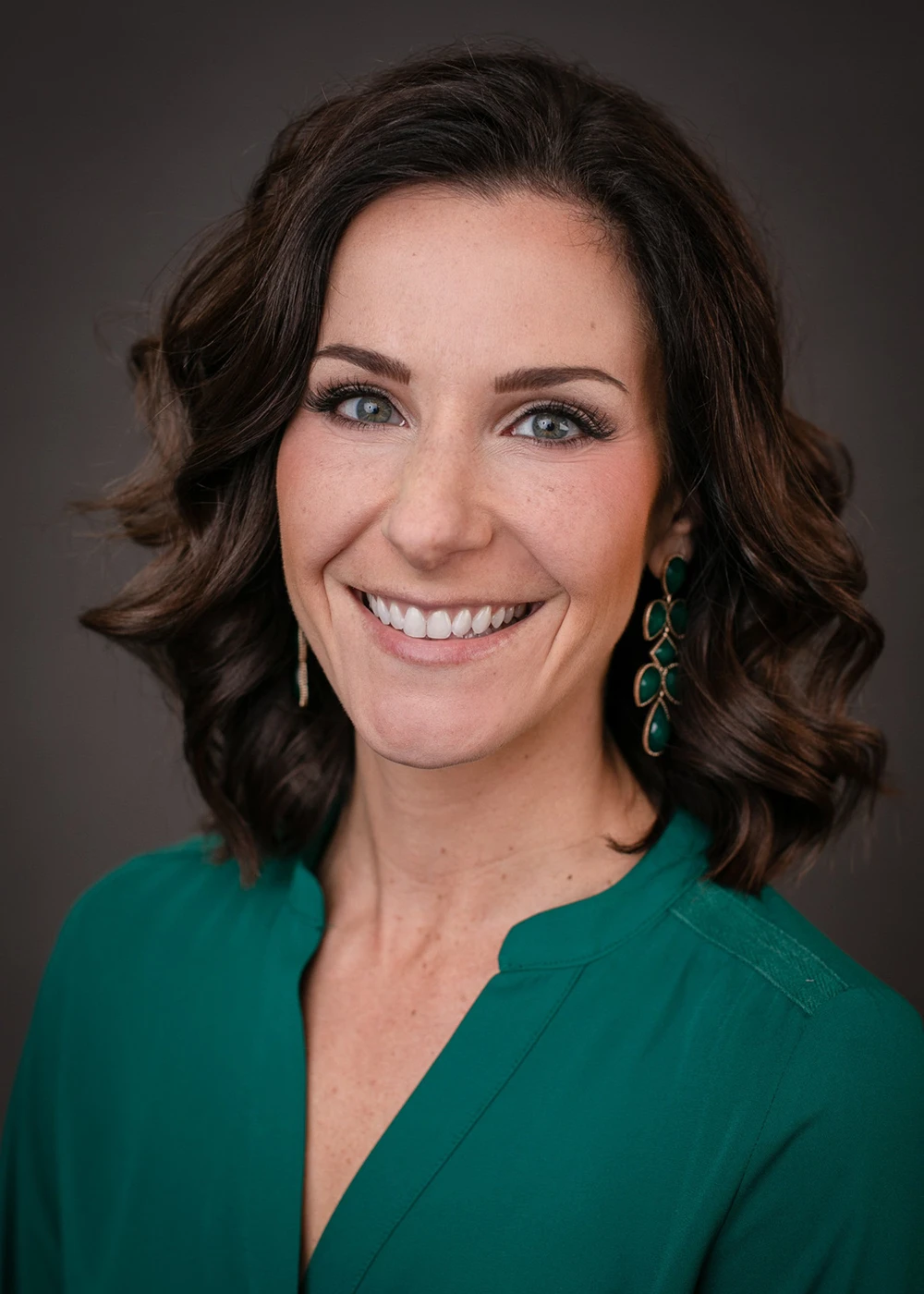The Meaning of Care Magazine
Addressing the Shortage: Mind-set, Heart-set and a Nontraditional Set of Students
Published: Nov. 25, 2019
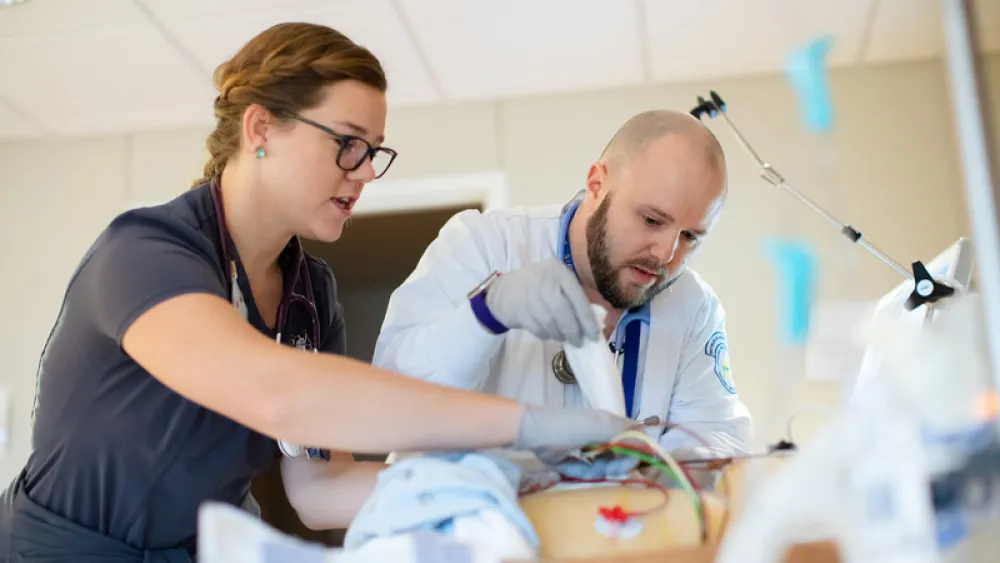
“It’s the whole masculine thing,” he said. “Men aren’t supposed to cry.”
As a 37-year-old nursing student at Nebraska Methodist College, he’s learned to embrace his emotions. He’s also learned he’s part of a solution to a growing health care problem – the nationwide nursing shortage.
Hands-on Experience and Why Mind-set Matters
Erwin recently completed a rotation on one of Methodist Hospital’s two Dedicated Education Units (DEU) – the Cardiac Unit.
The DEU program, a partnership between the hospital and college, began on the Progressive Care Unit in 2015. Dr. Marla Kniewel, EdD, MSN, RN, a professor at Nebraska Methodist College, drafted a proposal with the help of assistant professor Nellie Johnson, MSN, RN, CCRN, and the idea came to life. At the time, Dr. Kniewel wasn’t thinking of the nursing shortage or the roughly 1 million nurses needed by 2022 to prevent it from worsening.
“Mostly, I was thinking about the students,” she said. “I was trying to help them think more like a nurse.”
She now sees the program’s far-reaching benefits.
Here’s how the DEU works: Each student is paired with a staff nurse – or staff instructor – who remains the student’s mentor throughout the five-week program.
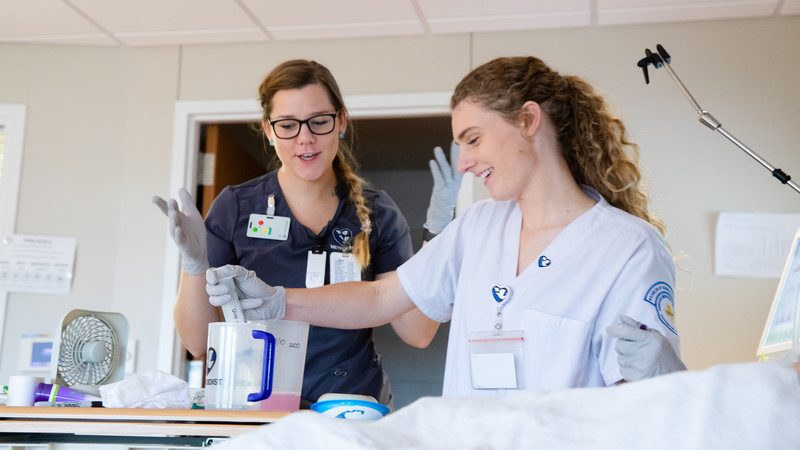
This hands-on model exposes students to a typical 12-hour nursing shift. At the same time, they’re learning how to deal with the stress that often accompanies those shifts.
“It’s our mission to produce excellent nurses,” said Dr. Deborah Carlson, PhD, president and CEO of Nebraska Methodist College. “But if those nurses don’t know how to handle adversity or maybe the grief that follows the first death of a patient, then we’ve lost.”
The college recently implemented “mind-set curriculum,” which places an emphasis on self-care and resilience. According to Dr. Carlson, it helps prevent burnout – a contributing factor to the U.S. nursing shortage.
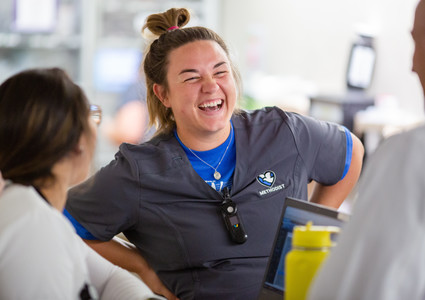
While more than half of the college’s graduates end up working for Methodist, many others choose work elsewhere.
“No matter where our students go, we want them all to be able to say, ‘This thing that I’m going through? It’s tough. But I’ll be OK because I learned how to cope at Nebraska Methodist College,’” Dr. Carlson said.
The Meaning of Care Heart-set
Erwin, who graduates in May 2020, aspires to be a Methodist nurse.
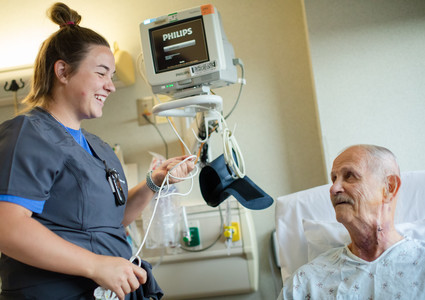
That culture – The Meaning of Care – is something else the college teaches.
“They do it by example,” said Carli Holz, BSN, RN, a former DEU student who is now a Methodist progressive care nurse. “It’s their willingness to stop whatever they’re doing to help you. It’s the way they interact with us and each other. The Meaning of Care is always on display.”
“That’s the heart-set piece,” Dr. Carlson said. “Which is easy for us.”
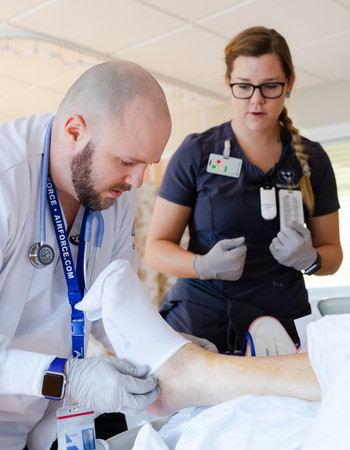
During his second week on the Cardiac Unit, Erwin rolled a compression sock onto Walter’s foot and gently patted his knee. Erwin asked him: “Is that OK for you, Walt?”
Having just undergone open-heart surgery, Walter had a tube down his throat. He couldn’t speak, and he was weary, but the two locked eyes. Erwin seemed to know: It was OK.
“I can just tell,” said Tanya Sosnowski, Walter’s wife. “I can tell he feels a connection to PJ. The eye contact he’s making and the smiles he gives him. PJ makes him feel comfortable. And right now, that’s what we need.”
Men in Nursing
Erwin is exactly the type of person the college actively recruits with the help of its American Association for Men in Nursing chapter. Members visit area high schools in an effort to interest students – particularly young men – in the nursing field. While males account for about half the nation’s population, they only make up about 9% of the nursing workforce.
Dr. Carlson believes that if more young men are exposed to the idea of nursing, more of them might consider it as a career. This, she believes, could help narrow the gap of the roughly 825 registered nurses for every 100,000 people.
“Nursing attracts compassionate men,” Dr. Carlson said. “And when you have that combination – that strength of a male and that heart of gold – that’s enough to put just about any patient at ease.”
Methodist Hospital, which employs the highest percentage of male nurses in Nebraska, appreciates the college’s recruiting efforts.
“They’re helping us break down the perception that nursing is a female profession,” said Teri Tipton Bruening, MSN, RN-BC, CNE, vice president of patient care and chief nursing officer for Methodist Hospital and Methodist Women’s Hospital.
And through the DEU program, the college also helps hospital leaders identify some of the “best and brightest,” Tipton Bruening said.
“Male or female, we know exactly who we want to hire following that DEU rotation,” she said.
“It’s like an informal interview,” Dr. Kniewel added.
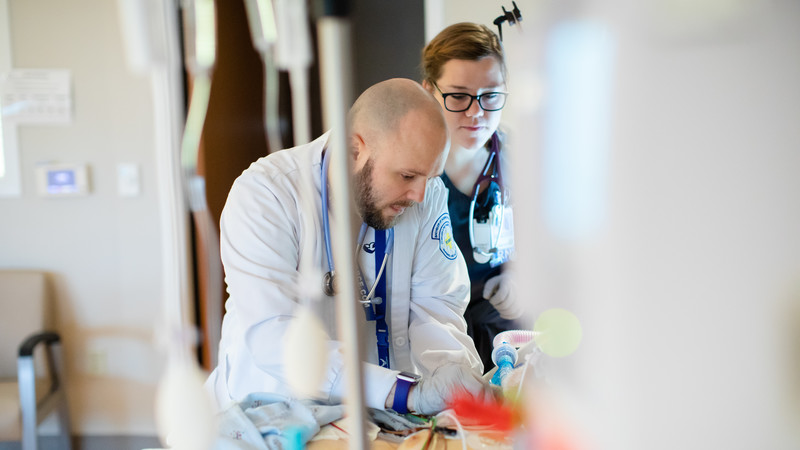
“This is the place I’d choose to get care,” he said. “There’s a level of trust here that I’m not sure you’d find anywhere else. Maybe it’s a comfort thing, but I want to be part of a team I trust.”
Photos by Daniel Johnson
More Resources
- Learn more about the educational opportunities at Nebraska Methodist College.
- Learn more about Methodist’s male nurse population.
- Read more from the Winter 2019 issue of The Meaning of Care Magazine.

